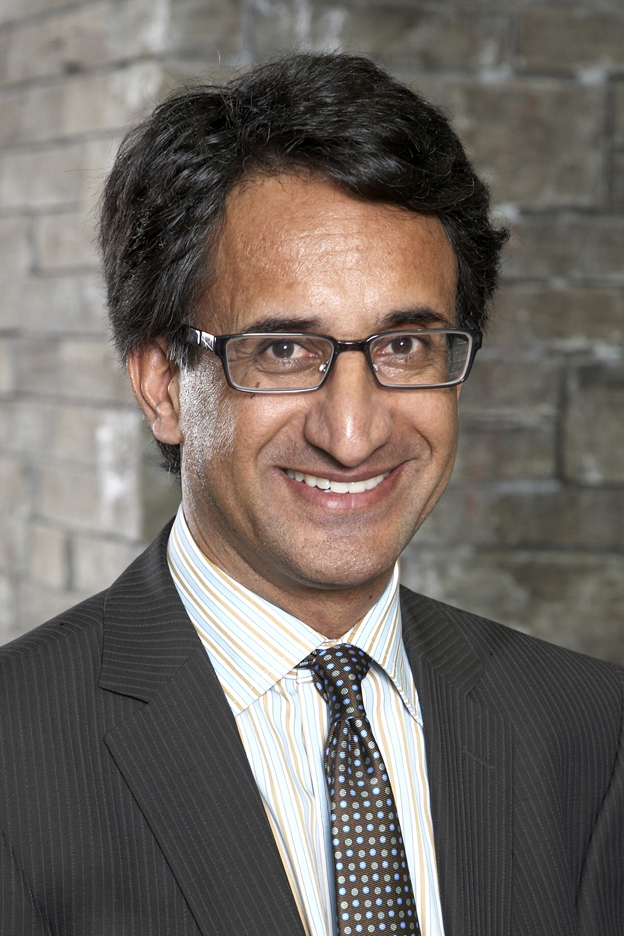National aging study launches recruitment in Ontario

The Canadian Longitudinal Study on Aging (CLSA) will follow 50,000 men and women between the ages of 45 and 85 for 20 years. The national study, which has sites in Hamilton and Ottawa, will collect information on the changing biological, medical, psychological, social, lifestyle and economic aspects of people’s lives as they age. Parminder Raina, a professor of clinical epidemiology and biostatistics at McMaster University, is the lead principal investigator of the study.
To help better understand the aging process, Ontario residents are being invited to participate in the largest study of aging ever undertaken in Canada.
The Canadian Longitudinal Study on Aging (CLSA) will follow 50,000 men and women between the ages of 45 and 85 for 20 years. The national study, which has sites in Hamilton and Ottawa, will collect information on the changing biological, medical, psychological, social, lifestyle and economic aspects of people’s lives as they age.
“We are hoping to enrol more than 10,000 participants from Ontario who will help us to shed light on causes of disease and disability and help us understand the determinants of healthy aging,” said Parminder Raina, lead principal investigator of the study and a professor of clinical epidemiology and biostatistics at McMaster University. “By studying aging as a process – and looking at the various trajectories of aging – we can begin to understand why some people age in a healthy way and why others do not.”
Participation in the CLSA involves two different groups. Some people will be contacted for a telephone interview, while others will take part in a home interview and a visit to a data collection site in their area. In Ontario, data collection sites are located at McMaster University in Hamilton and Bruyère Research Institute in Ottawa.
Ontario residents between the ages of 45 and 85 are eligible to take part, but require an invitation to participate. Beginning this month, more than 9,800 invitation packages will be mailed by the Ministry of Health and Long-Term Care, on behalf of the CLSA, to potential participants. Interested respondents send back a ‘consent to contact’ form. The CLSA then gets in touch with them.
“With the number of seniors expected to increase rapidly over the next two decades, there is an urgent need to understand the factors that shape the way we age,” said Vanessa Taler, lead site investigator for the CLSA in Ottawa, scientist at the Bruyère Research Institute, and an assistant professor of psychology at the University of Ottawa. “With the help of Ontarians, CLSA researchers will be able to answer critical questions on aging, which will translate into improvements in health and quality of life.”
The demographics in Ontario are changing now that baby boomers are entering their retirement years. In 2010, Statistics Canada reported that 1.8 million people in Ontario were aged 65 or older. By 2031, that number is expected to double to 3.7 million people, meaning roughly one in five Ontarians will be age 65 or older.
CLSA participants are asked questions about their health and well-being, including physical, social and emotional functioning, lifestyle and behaviours, as well as the onset of health conditions and diseases.
At data collection sites, cognitive and physical assessments are taken, including height and weight; vision and hearing tests; blood pressure and cardiovascular measures; a bone density scan and strength and balance tests. Participants who visit data collection sites receive specific personal health information, meaning that through their participation they will contribute to the promotion of healthy aging as well as gain insight into their own health status.
Interviews and data collection visits take place every three years, with a follow-up call midway between to maintain contact. By committing an hour for a telephone interview or a couple hours for a visit to a data collection site, participants will help to improve the health and well-being of current and future generations, changing the way people live and approach growing older.
“The CLSA represents a unique platform that will be used by researchers from all disciplines and fields, and that has the potential to contribute significantly to our understanding of biological, psychological and social determinants of active and healthy aging for the benefit of all Canadians,” said Yves Joanette, scientific director of CIHR’s Institute of Aging (CIHR-IA).
The CLSA involves a team of more than 160 researchers and collaborators across the country, including co-principal investigators Susan Kirkland of Dalhousie University and Christina Wolfson of McGill University.
The Canadian Longitudinal Study on Aging is a strategic initiative of Canadian Institutes of Health Research (CIHR). Funding for the study has been provided by the Government of Canada through the CIHR and the Canada Foundation for Innovation. Additional support in Ontario has been provided by the provincial Ministry of Economic Development and Innovation.
